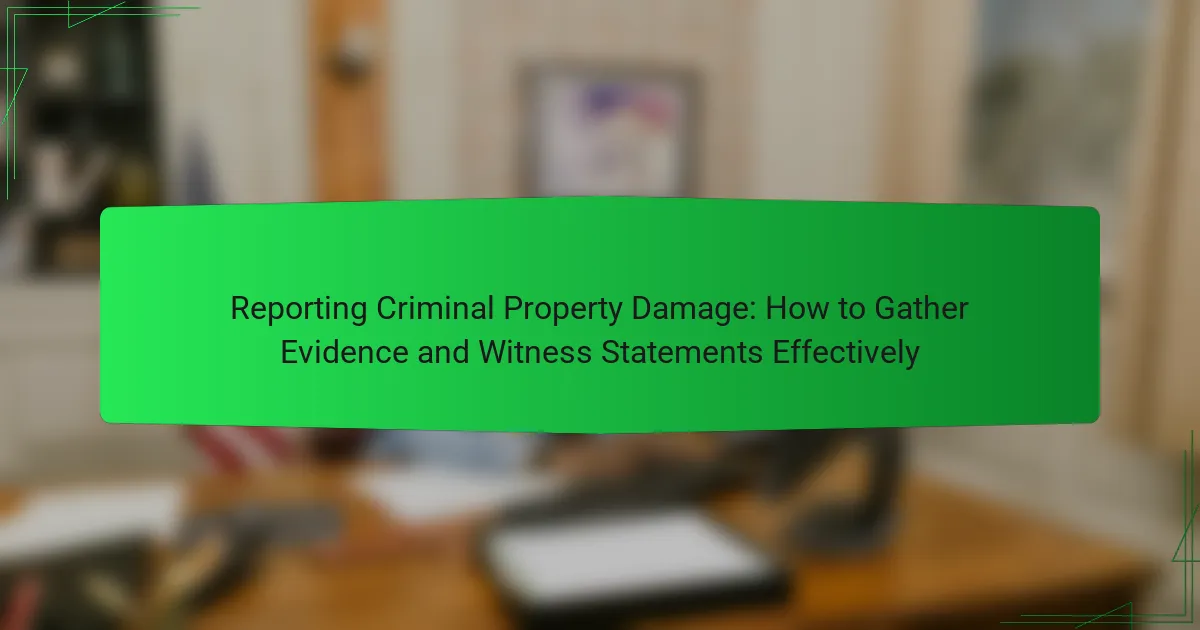Criminal property damage reporting involves documenting incidents of intentional property damage or destruction, which is essential for law enforcement investigations. Accurate reporting helps establish the facts of the incident, including details such as time, location, extent of damage, and potential suspects. The article outlines a systematic approach for gathering evidence, including securing the scene, documenting […]
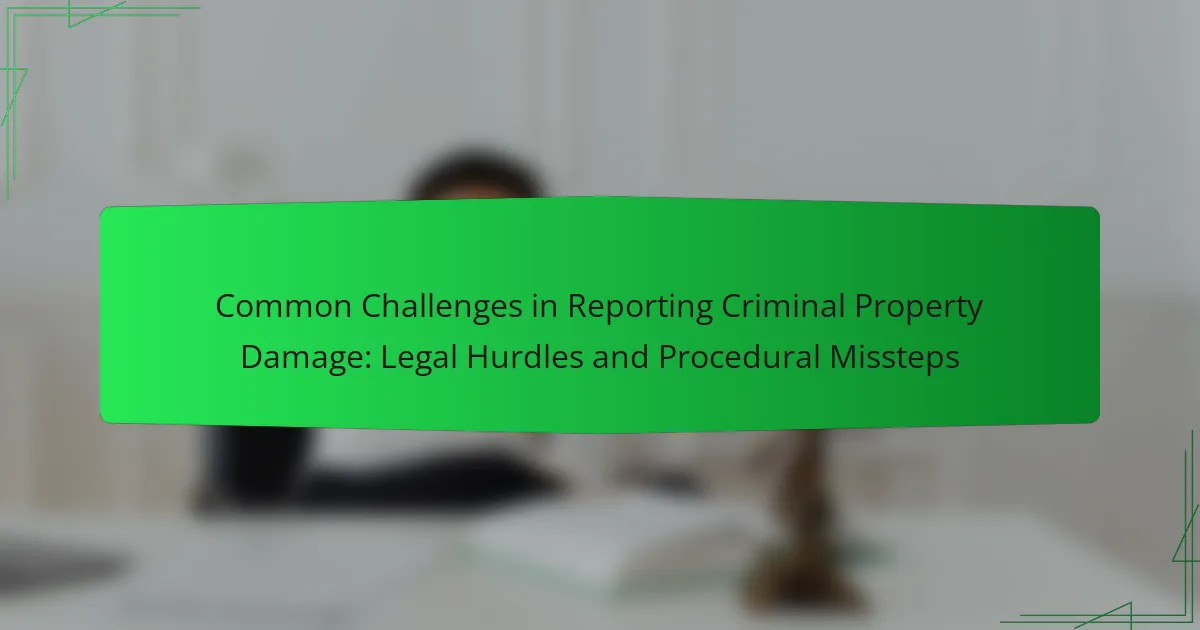
Common Challenges in Reporting Criminal Property Damage: Legal Hurdles and Procedural Missteps
The article addresses the common challenges faced in reporting criminal property damage, focusing on issues such as underreporting, lack of evidence, and procedural complexities. Victims often hesitate to report incidents due to fear of retaliation or emotional distress, while varying laws across jurisdictions complicate the reporting process. Accurate reporting is crucial for ensuring justice, as […]
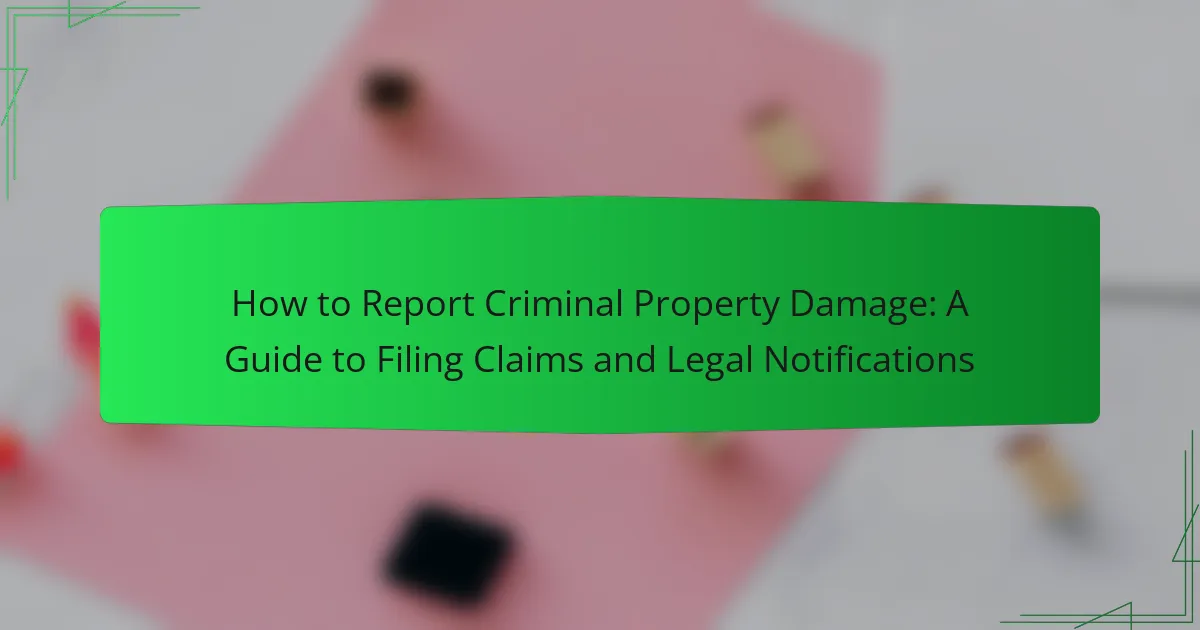
How to Report Criminal Property Damage: A Guide to Filing Claims and Legal Notifications
Criminal property damage involves the intentional destruction or alteration of another person’s property, encompassing acts such as vandalism and graffiti. This offense is classified as a criminal act and can lead to both criminal charges and civil liability, with penalties varying based on the damage’s extent and intent. Reporting such damage requires contacting local law […]
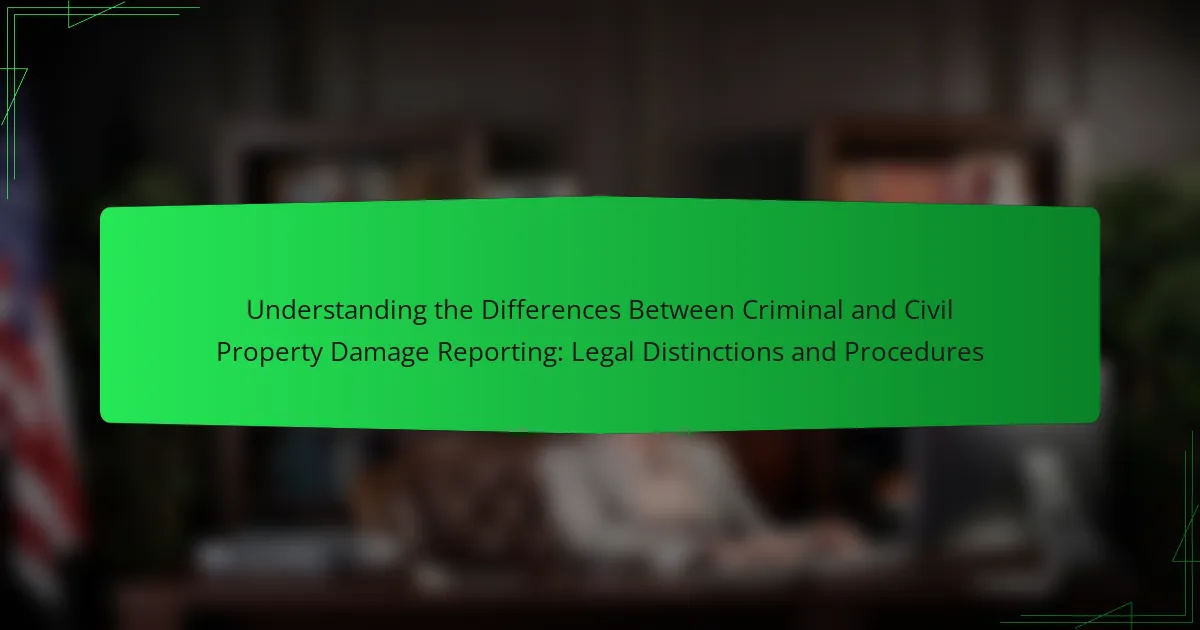
Understanding the Differences Between Criminal and Civil Property Damage Reporting: Legal Distinctions and Procedures
Criminal property damage reporting involves notifying law enforcement about illegal actions that result in damage, such as vandalism or arson. This process is distinct from civil property damage reporting, which addresses disputes between individuals or entities and focuses on compensation rather than criminal prosecution. The article outlines the key differences between these two reporting processes, […]
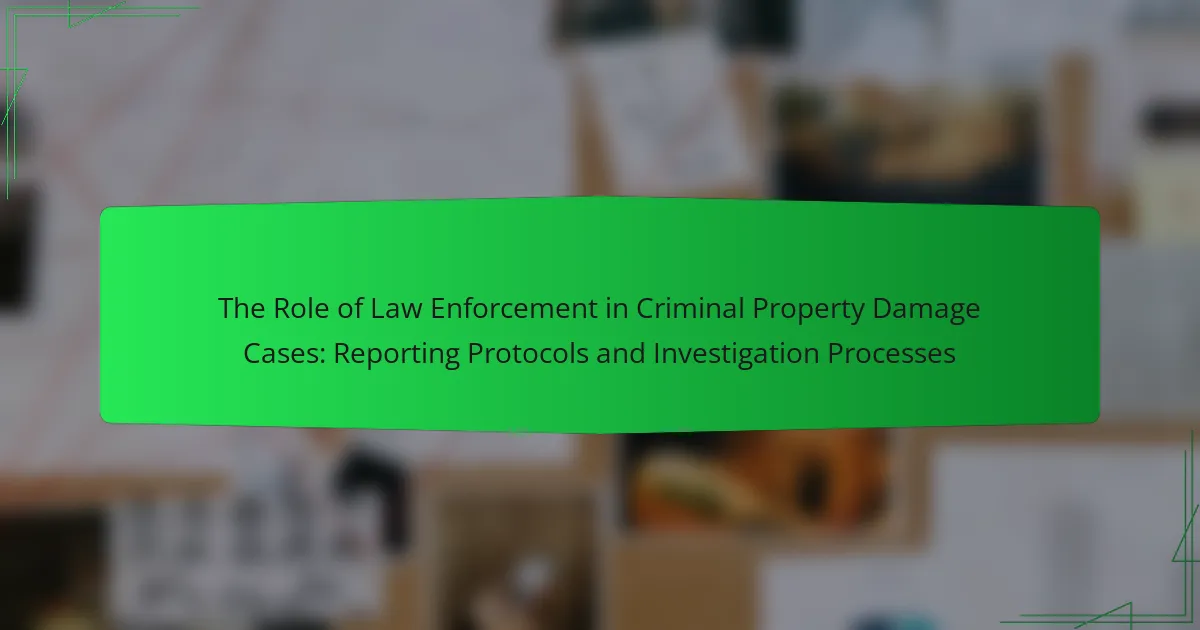
The Role of Law Enforcement in Criminal Property Damage Cases: Reporting Protocols and Investigation Processes
Law enforcement is essential in addressing criminal property damage cases, focusing on investigating incidents and ensuring accountability. The article outlines the systematic investigation process followed by law enforcement, which includes securing the scene, gathering evidence, interviewing witnesses, and compiling reports for legal proceedings. It also highlights the challenges faced by law enforcement, such as difficulties […]
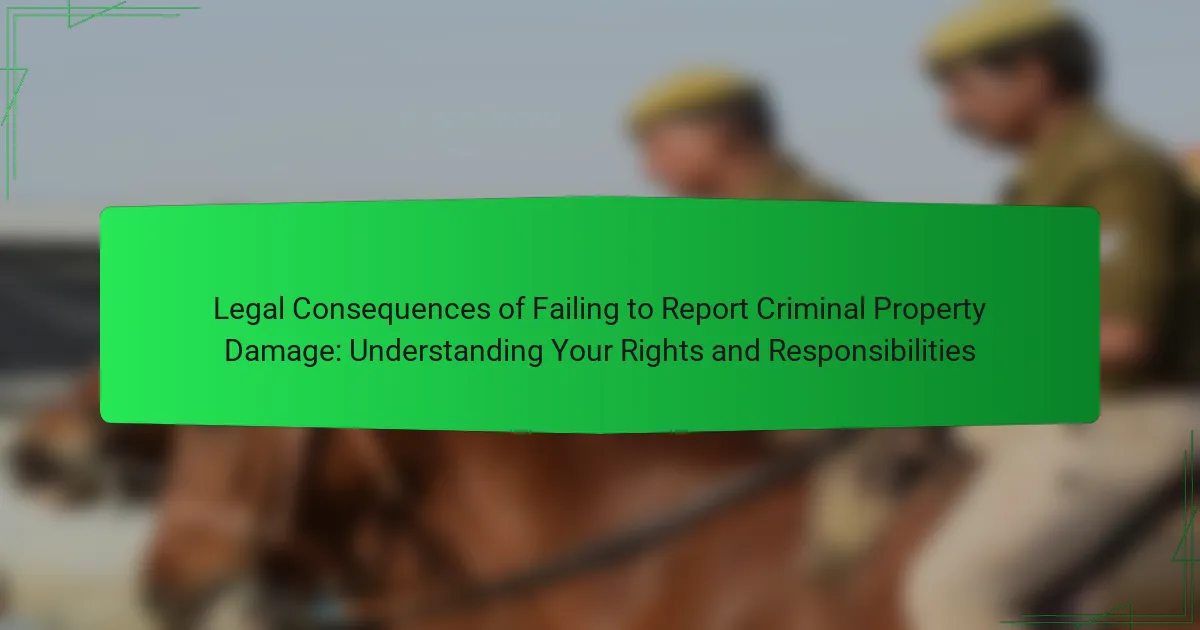
Legal Consequences of Failing to Report Criminal Property Damage: Understanding Your Rights and Responsibilities
Failing to report criminal property damage can result in legal consequences, including fines and potential criminal charges. Individuals are often legally required to report incidents involving vandalism or theft, and non-reporting may be seen as complicity or negligence. Common reasons for not reporting include fear of retaliation, distrust in law enforcement, and a belief that […]
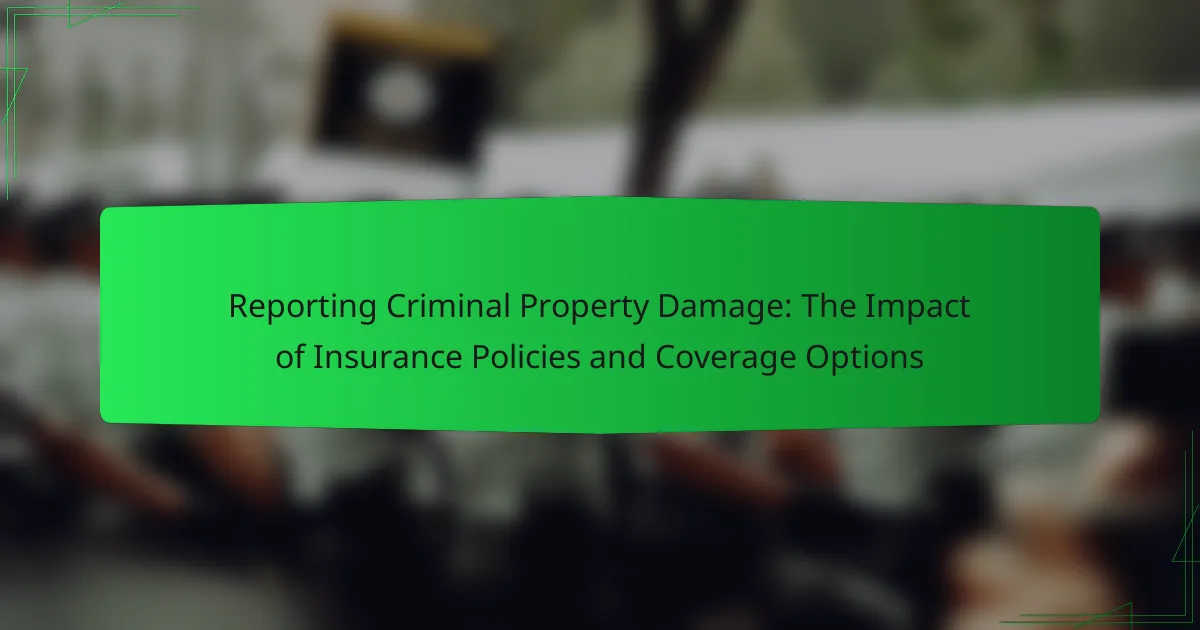
Reporting Criminal Property Damage: The Impact of Insurance Policies and Coverage Options
Criminal property damage is the intentional destruction or defacement of another person’s property, encompassing acts such as vandalism and graffiti. This article outlines the legal implications of such actions, including varying penalties based on jurisdiction and property value. It also examines the role of insurance policies in covering criminal property damage, highlighting the importance of […]
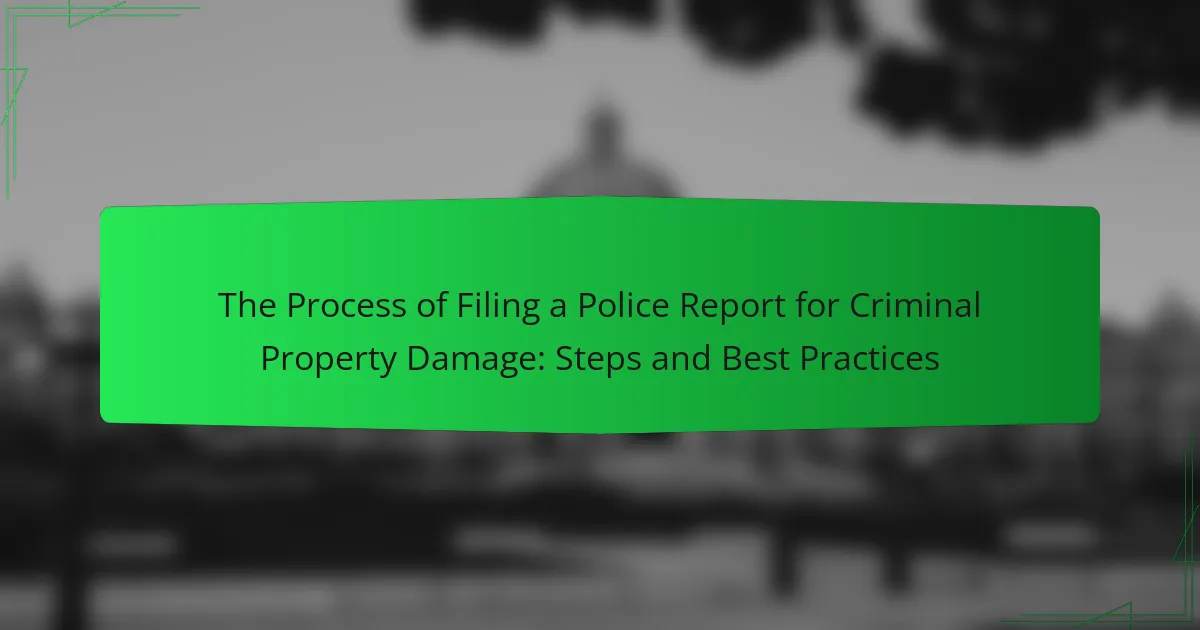
The Process of Filing a Police Report for Criminal Property Damage: Steps and Best Practices
Filing a police report for criminal property damage involves a systematic process to ensure accurate documentation and investigation. Key steps include gathering relevant details such as the date, time, and location of the incident, as well as documenting the damage with photographs. Individuals must contact their local police department, provide a detailed account of the […]
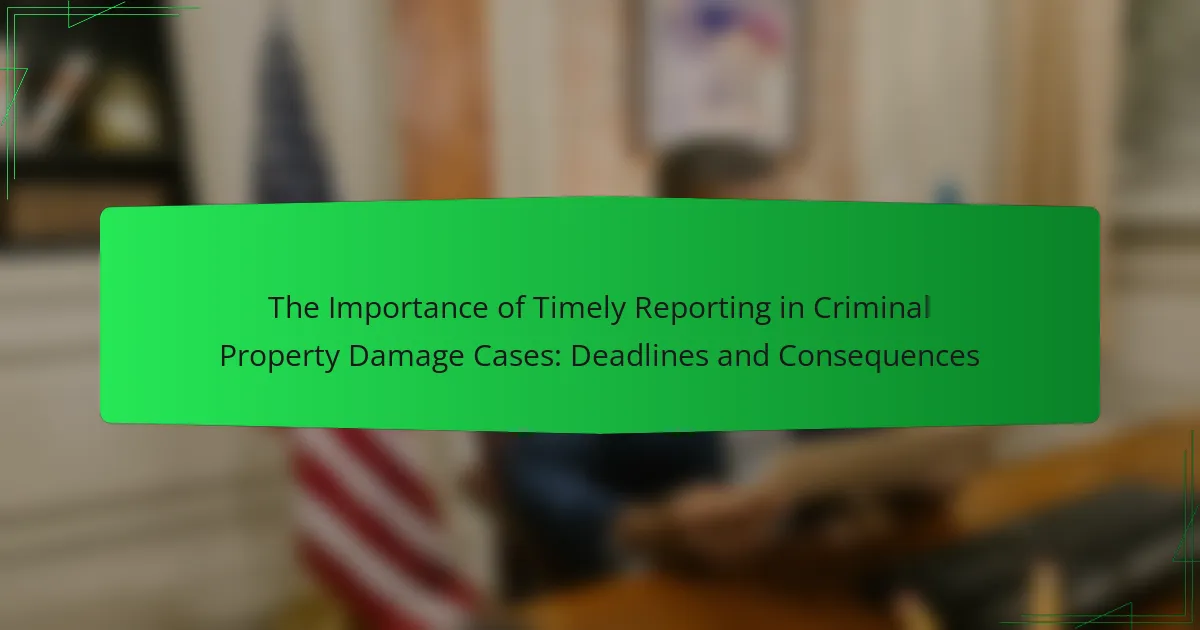
The Importance of Timely Reporting in Criminal Property Damage Cases: Deadlines and Consequences
Timely reporting in criminal property damage cases is essential for effective investigation and resolution. This process enables law enforcement to collect evidence while it remains intact, increasing the chances of suspect identification and preserving physical evidence that may deteriorate over time. Prompt reporting also facilitates quicker insurance claims, allowing victims to receive compensation sooner. Research […]
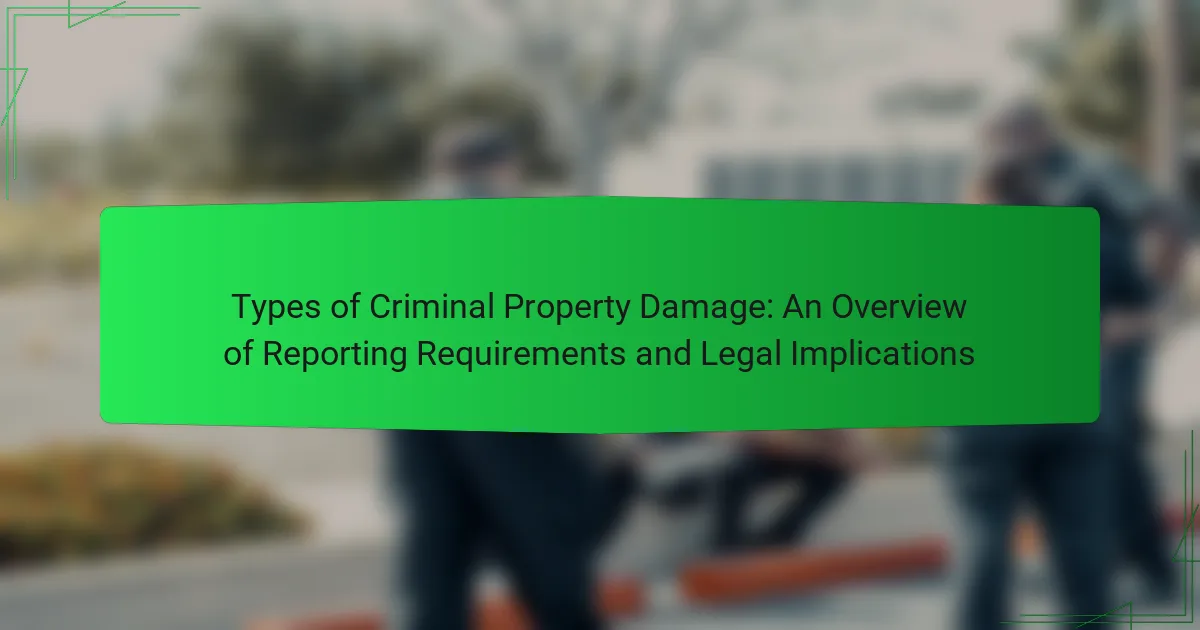
Types of Criminal Property Damage: An Overview of Reporting Requirements and Legal Implications
Criminal property damage encompasses various offenses, including vandalism, arson, and burglary, each involving the intentional destruction or defacement of another person’s property. The article outlines the legal implications of these actions, such as potential criminal charges and civil liabilities, and emphasizes the importance of timely reporting to law enforcement. Victims are advised to provide detailed […]
